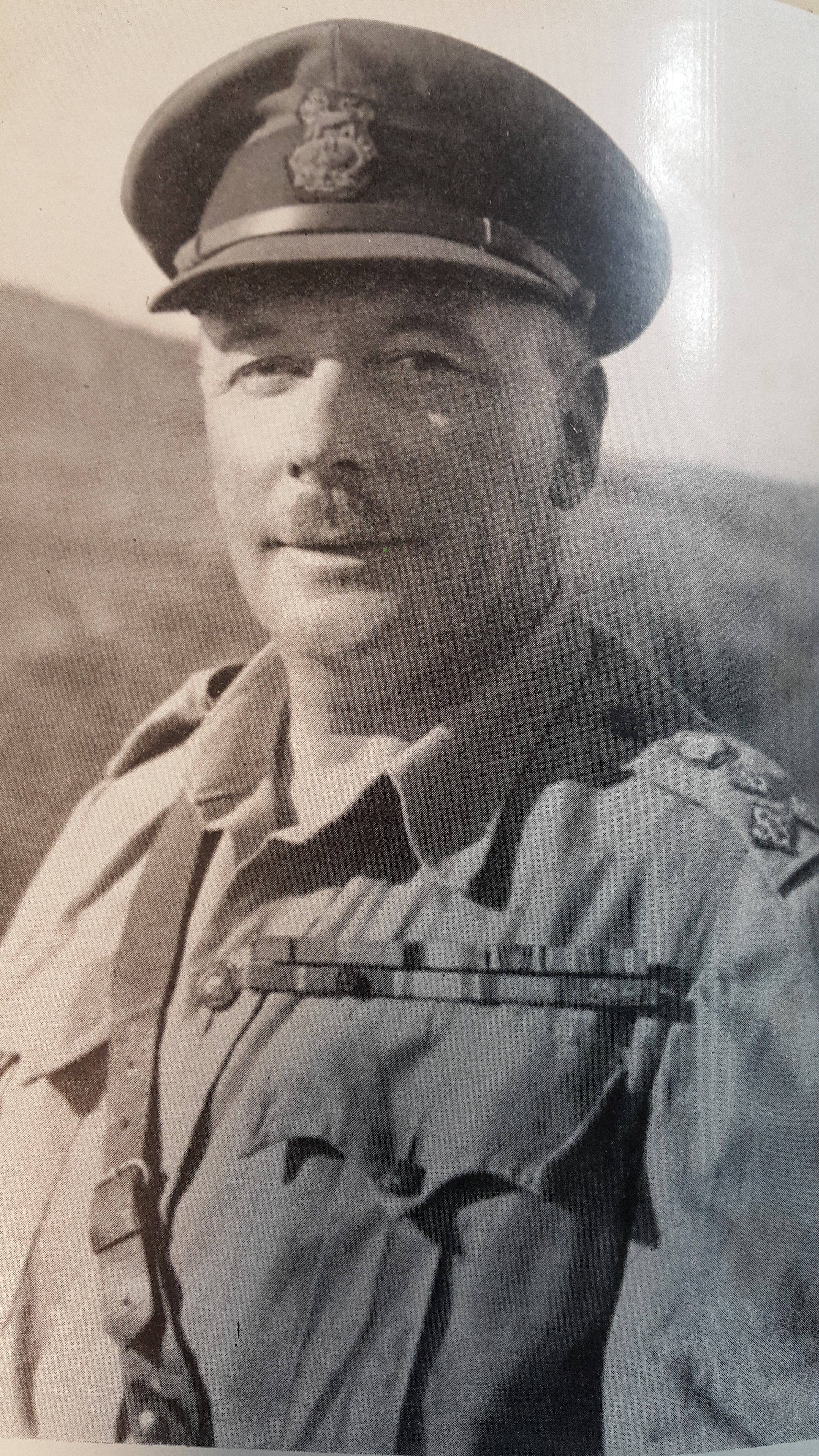Frederick Kisch
Brigadier Frederick H. Kisch
Born, 1888, in Darjeeling, India.
Killed by an exploding mine in Wadi Akarit, Tunisia, in April 1943, while serving as Chief Engineer of Montgomery’s Eighth Army.
Frederick Kisch served with distinction as an engineer in the British Army during World War I. He was wounded three times, and was awarded the D.S.O as well as the French Croix de Guerre for bravery. He ended the war as a Major, serving as head of Russian Intelligence at the War Office.
He was a member of the British delegation to the Versailles Peace Conference. For his outstanding service there from 1919 to 1921, he was promoted to the rank of Lieutenant-Colonel. He was made a Commander of the British Empire and was also made a Chevalier of the French Legion of Honor.
From 1923 to 1931 Kisch served as Chairman of the Palestine Zionist Executive – in charge of implementing in Mandatory Palestine the program of the Zionist Congress. In that capacity, he did much to further the development of the Yishuv into a nascent national entity. He encouraged immigration. He advised the Jewish settlers on self-defence. He helped bridge the gap between the Mandatory Authorities and the settlers. His crowning achievement was the complete transfer of control over health services and education from the Mandatory Authorities to the Jewish settlers.
He was also involved in many aspects of the cultural life in Mandatory Palestine. He served as Chairman of the Trust that published posthumously the lexicon of Eliezer Ben Yehuda; was instrumental in bringing Habima from Russia and getting it settled in Palestine; served on the Board of Directors of the Haifa Technion; was Chairman of the Board of the Palestine Post. After the Nazis came to power in Germany, he served as Treasurer, and was instrumental in the founding of the Palestine Philharmonic Orchestra.
In 1939 he returned to active duty with the British military. He served with distinction and was promoted to the rank of Brigadier General. In 1941 he was appointed Chief Engineer of Montgomery’s Eighth Army. He served throughout the campaign in North Africa, including the critical battles at El Alamein, Tobruk, and Tripoli, as well as the last great battle at Wadi Akarit. He was named a Companion of the Bath. At the time he died he was up for promotion to Major General. He was at the time the highest ranking Jew to have served in the British Armed Forces.
Always personally in the thick of the military action, he was killed when a mine exploded as he was overseeing the clearing of one of the last German minefields. He is buried at Wadi Akarit in a British military cemetery.
Today his sword is on display in Latrun. Sderot Kisch on the Carmel in Haifa, as well as Ya’ar Kisch and Kfar Kisch in the Galilee, are named in his memory.
 Frederick H. Kisch
Frederick H. Kisch
